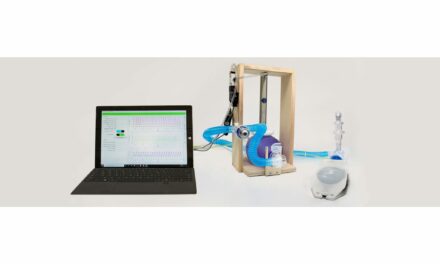Philips Respironics has recalled certain bi-level positive airway pressure (also known as Bilevel PAP, BiPAP, or BPAP) machines that may contain a plastic contaminated with a non-compatible material, according to a U.S. FDA alert sent to patients, caregivers, and healthcare providers.
If that plastic is in the device motor, it may release certain chemicals of concern called volatile organic compounds (VOCs). The plastic may also cause the machine to fail and stop working suddenly during use.
Bi-Level Positive Airway Pressure Machines (BiPAP)
A bi-level positive airway pressure machine pumps air under varying pressure into the airway of the lungs. BiPAP (Ventilator) machines use a higher pressure when you breathe in and lower pressure when you breathe out. These devices are prescribed for people with obstructive sleep apnea syndrome to keep their airways open during sleep, for those who have respiratory insufficiency (not enough oxygen breathed in or carbon dioxide breathed out), or respiratory failure (stop breathing). BiPAP machines may be used to treat adult and pediatric patients at home and in clinical environments, such as hospitals and sleep laboratories, depending on the instructions for use for the particular device model.
The Philips Respironics BiPAP machines included in this recall may contain a plastic contaminated with a non-compatible material. If that plastic is in the device motor, it may release VOCs.
The potential risks of inhaling VOCs include:
- Headache
- Dizziness
- Irritation in the eyes, nose, respiratory tract (airway), and skin
- Hypersensitivity reaction, such as an allergic reaction or another immune system reaction
- Nausea or vomiting
- Toxic and cancer-causing effects
If the plastic causes the machine to fail and stop working suddenly, it may lead to serious injury or death.
This recall is not associated with the PE-PUR foam issue impacting certain BiPAP machines recalled in June 2021, described in the Update: Certain Philips Respironics Ventilators, BiPAP Machines, and CPAP Machines Recalled Due to Potential Health Risks: FDA Safety Communication. However, this new recall does apply to some of the devices recalled in June 2021.
Philips distributed 386 affected BiPAP machines in the U.S. between Aug. 6, 2020, and Sept. 1, 2021. On Aug. 26, 2022, Philips sent affected customers, including Durable Medical Equipment (DME) suppliers, an Urgent Medical Device Recall letter. The models, some of which are intended for use only in clinical environments, are listed below; however, only machines with the serial numbers identified in the company’s Urgent Medical Device Recall letter are affected by this recall.
- A-Series BiPAP A30 (Ventilator)
- A-Series BiPAP A40 (Ventilator)
- A-Series BiPAP V30 (Auto Ventilator)
- OmniLab Advanced+
The FDA has published a summary of recommendations for how patients, caregivers, and healthcare providers should address this new recall.
“The FDA recognizes that patients rely on these devices, and we are closely monitoring the company’s actions to ensure that the issues are resolved in a timely manner,” the FDA says in a release. “We continue to work with Philips to assure that the company takes appropriate steps to correct the products.”
Featured image: The BiPAP A40 Ventilator was included on the FDA’s summary of recommendations for this latest recall.





